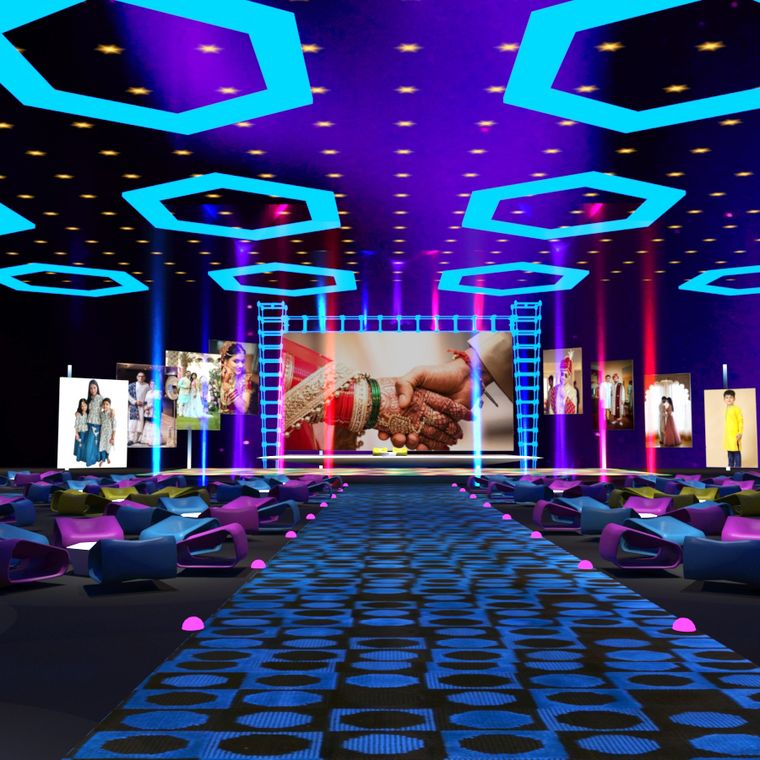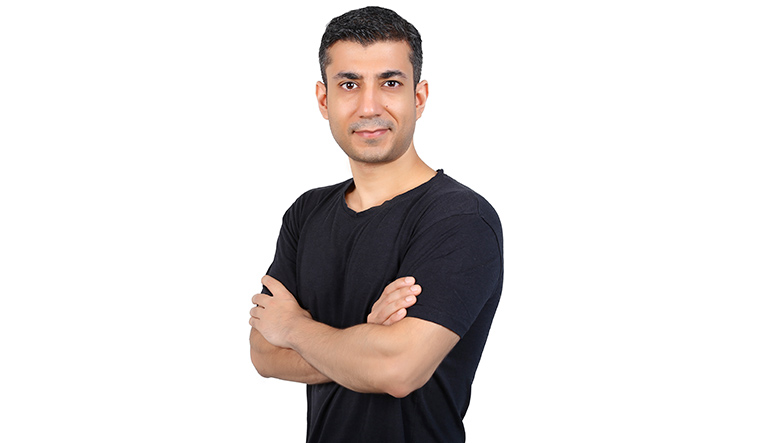Delhi-based lawyer Aarti Manchandani wanted her wedding on January 30 to be a memorable event. But with Omicron playing spoilsport she had to shift the ceremony to sometime in February. Even so, she is determined to make the original date count. “My partner and I will exchange NFT rings in the metaverse,” says Manchandani, who will buy it off the blockchain.
She is holding her engagement on NextMeet, an immersive platform that enables real-time virtual conferencing and networking in an avatar-based 3D environment. In fact, it will be the first time NextMeet—which started in August last—will host a wedding in a customised 3D set-up. Till now, they worked with corporates and universities to organise conferences and events.
Recently, they hosted a birthday party and a reunion for a batch of doctors. But calling 100 guests to bless a couple in a party hall, where they can move around in their traditionally decked out “avatars”, laugh and chat in groups of three and four, watch a dance performance or a ring exchange ceremony, is something NextMeet cannot stop raving about. “Like how in PUBG you encounter and fight other people in a digital universe, here you will move around or sit back and enjoy the party,” says Manchandani.
Pushpak Kypuram, founder-director of the Hyderabad-based NextMeet, believes that it is only a matter of time before the metaverse is taken more seriously. “Fifty years back people didn’t think websites were needed,” says Kypuram, who started out as a 3ds Max instructor in the 1990s.
When asked how the metaverse is any different from existing avatar-based gaming platforms like Fortnite or 3D modelling, he says that it is the combination of experience and commerce. “3D has been there for a long time,” he says. “So have grand three-dimensional visuals. But it is the next level Web 3.0 which promises decentralising of finance, tokenisation and commerce. Eventually within these games, one can do business, and those purchased items will get delivered home. Integration of blockchain, NFT and crypto in these gaming realities is what the metaverse is all about. Every brand will soon create a virtual store.” Kypuram has worked with the likes of Samsung, Michigan State University and ICFAI in Hyderabad.
Justin Bieber, Travis Scott and Ariana Grande have all transmuted into avatars to perform in live concerts in the metaverse. Now Daler Mehndi, once the indisputable king of bhangra, will become the first Indian music star to regale audiences in the virtual world on Republic Day 2022. His fans can watch his avatar perform his beloved hits at PartyNite.io. No stranger to technological innovations, Mehndi is certain that showbiz will get new opportunities and a new direction in the metaverse. Mehndi tells THE WEEK, “If there is one name which can spread business faster than anyone else, it is that of Daler Mehndi. The biggest name in Asia (in the world of music) is Daler Mehndi. The metaverse chose me.”
Since Facebook rebranded itself as Meta in the last week of October 2021, with a commitment to spend $10 billion in building its virtual platform, the world has been hyperventilating over the metaverse. Leaving aside all the marketing hype, what exactly does the fuzzy concept denote?
There are plenty of explainers and video tutorials which loosely interpret it as a merger of our virtual, augmented and physical realities. Or a continuous network of virtual worlds which promise a more life-like extension of online social connection and digital economy. In a best case scenario, it involves an “interoperable” world where your avatar can buy a Starbucks coffee, go to an office, visit a restaurant and return home in a cab, all the while sitting at home punching buttons. But most Indian startups building into the metaverse do not mention any special head-set to enter this realm.
“Metaverse is going to be most effective in the world of shopping and gaming. But for you to even experience that, you need Oculus, a VR headset. Once you wear it, you feel like you are in a different realm altogether. You can fly, jump, sprint, do whatever you want,” says Udit Goenka, founder of the SaaS products marketplace, Pitchground. “The then Facebook bought the company Oculus in 2013 and the idea of the metaverse has existed since. But internet penetration was not as pervasive back then. Even the product Oculus was in a beta stage. Now they are hoping more people will buy this device so more brands can start selling products on their social media platforms like Instagram.”
He believes that the idea of the internet’s latest version, Web 3.0, which will contain the entire array of blockchains, crypto-assets and metaverses is very tempting from the point of view of decentralising commerce. But one needs to be careful of scammers.
“Everyone is making their own coins now. It takes 30 minutes to make one,” says Goenka. After a long wait, Facebook is set to launch its own currency, Diem, and power ahead with its metaverse ambitions. In December, Meta unveiled Horizon Worlds, a virtual reality social media platform where you can “explore, play and create in extraordinary ways”.
But some Indian companies are already rolling out “native metaverses” with niche intentions. Like OneRare, “a foodverse game for Web 3.0,” set to go live in February. Supreet Raju, cofounder of the company, wants to bring the global F&B industry into the blockchain. “We want restaurants and chefs to come on the platform, meet new audiences, create new restaurants, recipes and NFTs, which can eventually be swapped for a real dish. We may be in two different cities, but we can meet in the metaverse, get a local Domino’s Pizza outlet to deliver a real pizza. Our avatars can then sit at a table for two to enjoy the meal,” says Raju. Transactions will take place in their own currency, Orare.
For Sunny Makroo, there are only two ways people run. On a treadmill or in the outdoors, amidst nature, traffic and pollution. “But anyone who runs on a treadmill will tell you how boring and monotonous it gets. We are creating a metaverse where you could be on a treadmill at home, but will feel like you are running the Boston marathon route,” says Makroo, founder of Zippy, which wants to be the metaverse for endurance sports like running, riding and cycling.
Real kinematics (or motion of objects or bodies) of runners can be tapped from fitness wearables. “There will be an avatar in the virtual world who will mimic you and your speed. You can meet your fellow runners, talk to them, poke them….” says Makroo, who launched his company in July last year. “We were doing what we are doing even before Facebook announced their metaverse intentions. This is not hype for us.”





